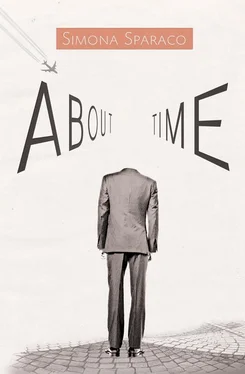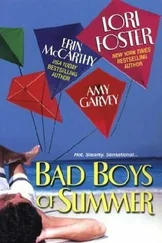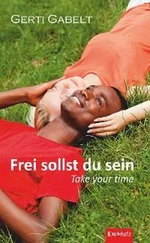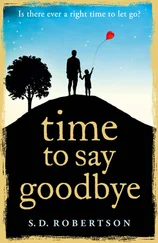I’m in Paris. And I’m cured.
Isabelle would be able to sleep even if bombs were falling in the street: she’s motionless, a mask over her eyes, her red curls covering half her face. Traces of Bengo everywhere, he must have tried that little trick with his tongue on her, too, but in vain. And yet I know it would only take a few soft words in her ear, whispered in a certain way, to wake her with a start. I can’t help it, it always amuses me.
She jerks up like a spring. “What’s happening?” she cries, moving her arms under the blankets. Then she recognizes the room, realizes she’s in her parents’ apartment for the weekend and turns to me, a look of surprise still on her face. The mask now covers only one eye, and her mouth is wide open. She’s funny.
We’re in love. She’s untidy, distracted, I’m fussy, a pain in the arse, and yet we’re in love.
She’s always leaving her clothes scattered on the floor, but her untidiness is bearable. I think I know her most intimate thoughts, and I like them. I trust her smiles, they would never be capable of doing me harm. What I know of her is enough for me, sometimes I even anticipate her moves. Habit has made us complicit with each other. For example, I know that in winter she likes to go into the bathroom barefoot, even though the tiles are cold, because then she appreciates the warmth of the bed even more. She’s one of those people who never take anything for granted, and has never demanded to be happy. Sometimes I get the absurd, crazy thought that she could melt into the air at any moment, like a vision. She’s my angel. She saved my life, and she might take flight again now that her mission is complete.
“Think that’s funny, eh?” she says, adjusting her hair and taking off the mask. She threatens to make me pay for it.
“I’m so scared,” I reply, not scared at all.
“It’ll happen when you least expect it, you’ll see.” She jumps out of bed and looks for her slippers. She says they’re always getting away from her, as if slippers could get away. “Don’t forget we have to pick up your aunt from the airport. She’s landing at eight tonight.”
“She’s not an idiot, and besides, she’s with her children, they can take a taxi.”
“Let’s go and pick them up anyway.”
But at about five, before going to the airport, we find ourselves walking along the Seine. Isabelle is wearing a beige coat with a white fur collar, she could have stepped straight out of a painting. The sky has taken on a weary look, the blue has faded and on the horizon brush-strokes of grey seem to make it even sleepier.
Giulia is in front of us. She rushed forward a few metres, and now she’s slowed down. She’s become a beautiful little girl. She smiles at the sight of the line of miniature Eiffel Towers on a rug a street vendor has laid in front of him. She looks at them, grabs them, studies them. She wants them. And we haven’t yet learnt to say no to her, at least not about things of little account.
Isabelle’s hand is intertwined with mine, her warmth in marked contrast to the sharp late-afternoon wind. Our rings rub together, almost as if they wanted to melt into one another. I turn up the collar of my coat with my free hand as we turn on to the Pont des Arts and walk across the worn wooden planks that creak almost imperceptibly beneath our feet. Giulia follows us, skipping, laughing, talking, asking questions, calling us. Her mother humours her with a patience that’s beyond me, the same patience that stunned me that afternoon, when I saw her at the airport for the first time. And now, as only she knows how, she again unsettles me as she leans on the iron railing and turns to look at the Seine, the Île de la Cité, the grim Conciergerie, and gazes in admiration at this City of Light which is almost dreamlike, veiled as it is by the diffuse light of the hour.
“My God, Svevo. Look at this place.”
It’s the place where she was born and grew up, her place. And now it’s as if she’s looking at her whole life on the horizon, such is the emotion I see in her eyes.
I know that she would have liked her camera with her and that she can’t bear the idea that she left it at home for one afternoon. The light is perfect, the colours unrepeatable. She looks at me, then at the scene, then again at me, and at last realizes that she doesn’t need a camera: this scene has impressed itself on her mind just as it would on a photograph.
I remember to check my e-mails on my mobile phone, there are reservations for the villa in Cortona to confirm. In the end Isabelle convinced me to transform it into a little hotel, and basically she was right, we couldn’t have managed with all those free rooms. To furnish it, we didn’t use a designer. She handled it all, adapting old objects she found in the cellar. So now even in Cortona we have a refrigerator transformed into a dresser, and an old sewing machine functions as a bedside table. You certainly can’t say that the villa has no personality, or that it isn’t a hospitable place, otherwise I wouldn’t find myself so often having breakfast with people from all over the world and listening to their stories. Most of them are artists: apparently the countryside around it is a much-prized source of inspiration, I was told by a painter who couldn’t stop contemplating it, until he bought a canvas and started painting it, prolonging his stay by several months.
Isabelle takes the mobile from my hands, her smile is trying to tell me that there is time for everything. There are so many things with which we can fill our life, the prow of that cargo ship without destination. So many books still unread, songs unheard, places not yet explored. So many departures, so many returns. There are days, like this one, when the hands of my watch stand at midday, giving me the illusion we still have the whole day ahead of us, even when the sun is about to set. But time evaporates every day and you can’t dilute it, or stop it, only fill it. Technology can help a bit, though sometimes it ends up swallowing us. These days you can have everything in an instant, and yet I know people who would give everything away to have one moment. One like this, for example: the three of us, strolling hand in hand on the Pont des Arts.
There is a band in the middle of the bridge. A heterogeneous group of people playing a blues: a pot-bellied sixty-year-old man in a red-and-white tracksuit on trombone, a couple of young boys in jeans on trumpet, a lady in a Fifties-style check suit on saxophone, and two strange characters on drums and guitar, one with yellow-and-blue trousers and the other in camouflage fatigues. They’re all different, and all smiling. They seem to have come together in this place by chance, like the rest of us, we stop to listen to them and find it impossible to keep still. I wonder what their story is, who they were before they turned into this little band, maybe only for a day, and in their eyes I find mine. We’re like Isabelle’s objects: refrigerators becoming dressers, cribs turned into window boxes.
Giulia calls to her mother from the middle of the bridge, because she wants her to dance with her. Isabelle tries to resist, but then yields and goes to her, slightly embarrassed, laughing, without taking her eyes off me.
The girl imitates her mother’s steps, and she’s so comical, some of the onlookers can’t help applauding, and nor can I. Then I grab Isabelle by the waist and start dancing with her, and she stops laughing and looks at me. She looks at me as if she wants to tell me how much she loves me. But I know that, just as I know that I’d like to bring into the world a child with her eyes, that all the richness of this life could be encompassed in a dance like this, that my hands are shaking, that Giulia is pulling my coat, that everyone is watching us, and that I love my wife more than ever.
Читать дальше












